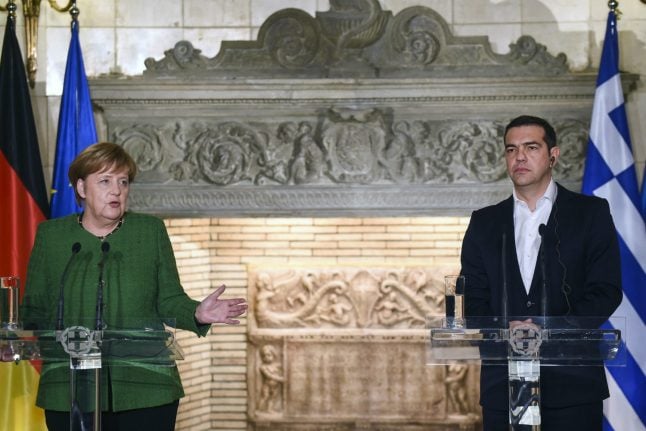Borg also urged Athens to “apply serious budget policies.”
In an interview with the German daily Handelsblatt, Borg was asked if European Union members might provide Greece with bilateral aid, and said: “Such an approach would have to be discussed very attentively within the eurozone.”
Greece is a member of the 16-nation eurozone, but Sweden, which currently holds the rotating EU presidency, is not.
“There is no legal basis” for such aid, Borg added.
“The European treaty even explicitly forbids EU member states from transferring their debts to others, and we should stick to that.”
Greek public finances are in terrible shape and the country’s sovereign debt was downgraded on Tuesday by the international ratings agency Fitch and placed on negative watch by Standard & Poor’s.
Borg pressed Athens to present “a multi-year consolidation plan and make drastic short term savings.”
“The government there must begin to finally apply serious budget policies,” he stressed.
A sudden and sharp revision of the country’s public deficit is something “that simply should not happen in a well-organized country,” the finance minister noted.
Greece’s partners are very worried about the situation, Borg said, adding that it was not only the result of the global economic crisis.
“Greek public debt was already out of control before the crisis erupted,” he noted.
His remarks followed unusually strong comment from the head of the European Central Bank, Jean-Claude Trichet on Monday, saying that the state of Greek public finances was very difficult and that “courageous” corrective action was needed.
Some analysts have interpreted such recent comment from officials in EU institutions as revealing reluctance to appear ready to help Greece as a matter of course, unless Greece shows it is going to take aggressive action to reduce its public deficit.


 Please whitelist us to continue reading.
Please whitelist us to continue reading.
Member comments